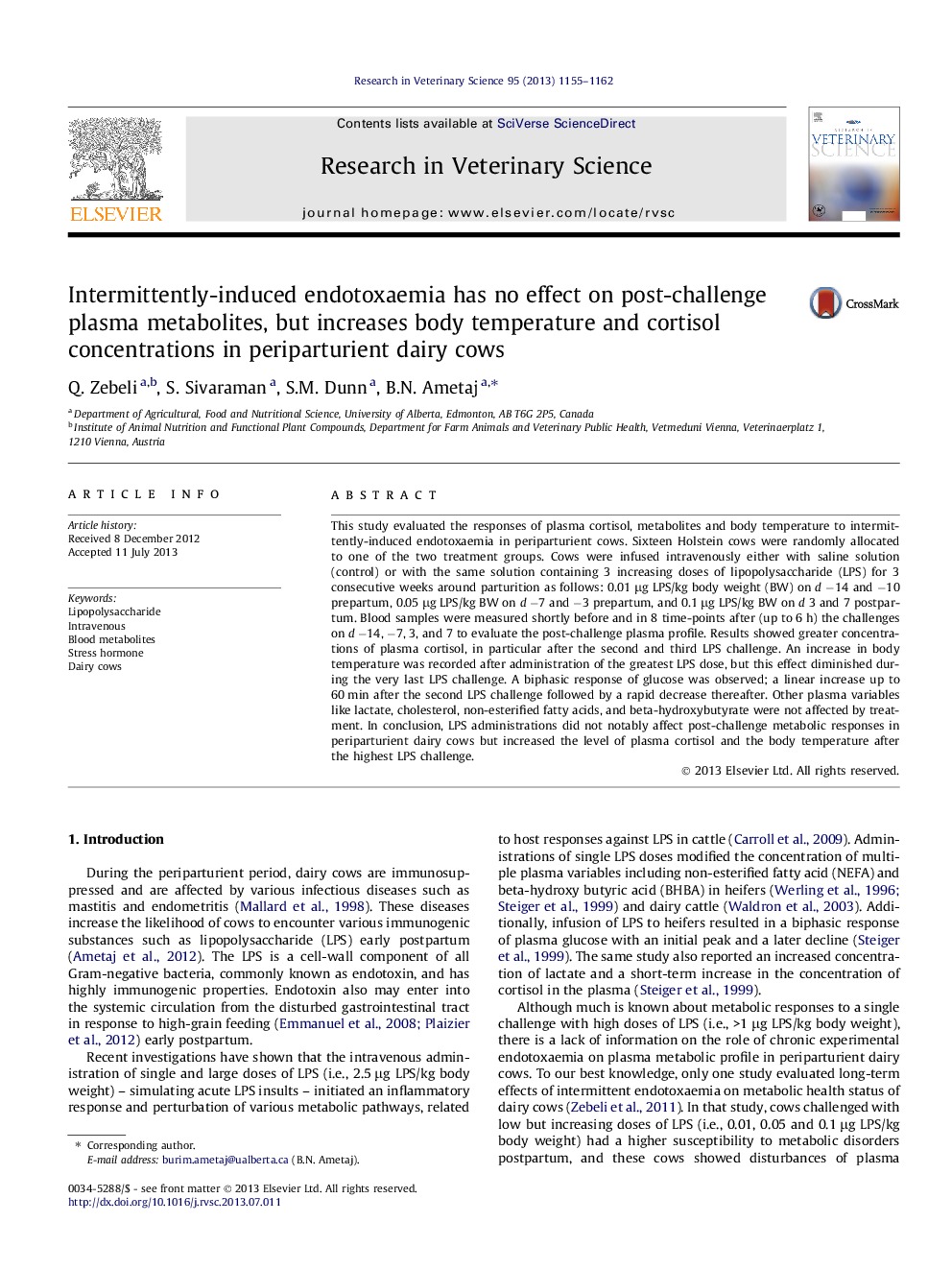| Article ID | Journal | Published Year | Pages | File Type |
|---|---|---|---|---|
| 2454829 | Research in Veterinary Science | 2013 | 8 Pages |
This study evaluated the responses of plasma cortisol, metabolites and body temperature to intermittently-induced endotoxaemia in periparturient cows. Sixteen Holstein cows were randomly allocated to one of the two treatment groups. Cows were infused intravenously either with saline solution (control) or with the same solution containing 3 increasing doses of lipopolysaccharide (LPS) for 3 consecutive weeks around parturition as follows: 0.01 μg LPS/kg body weight (BW) on d −14 and −10 prepartum, 0.05 μg LPS/kg BW on d −7 and −3 prepartum, and 0.1 μg LPS/kg BW on d 3 and 7 postpartum. Blood samples were measured shortly before and in 8 time-points after (up to 6 h) the challenges on d −14, −7, 3, and 7 to evaluate the post-challenge plasma profile. Results showed greater concentrations of plasma cortisol, in particular after the second and third LPS challenge. An increase in body temperature was recorded after administration of the greatest LPS dose, but this effect diminished during the very last LPS challenge. A biphasic response of glucose was observed; a linear increase up to 60 min after the second LPS challenge followed by a rapid decrease thereafter. Other plasma variables like lactate, cholesterol, non-esterified fatty acids, and beta-hydroxybutyrate were not affected by treatment. In conclusion, LPS administrations did not notably affect post-challenge metabolic responses in periparturient dairy cows but increased the level of plasma cortisol and the body temperature after the highest LPS challenge.
